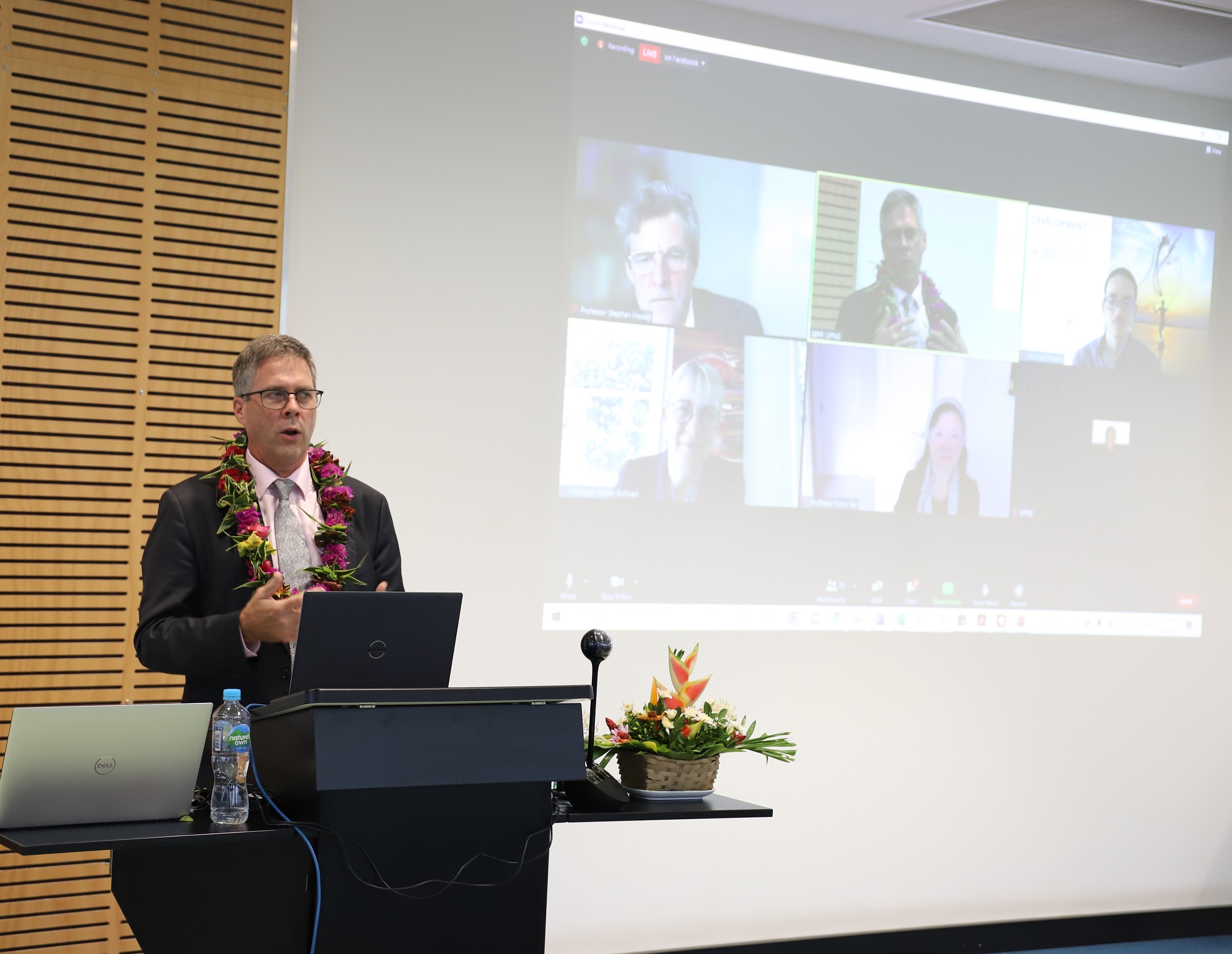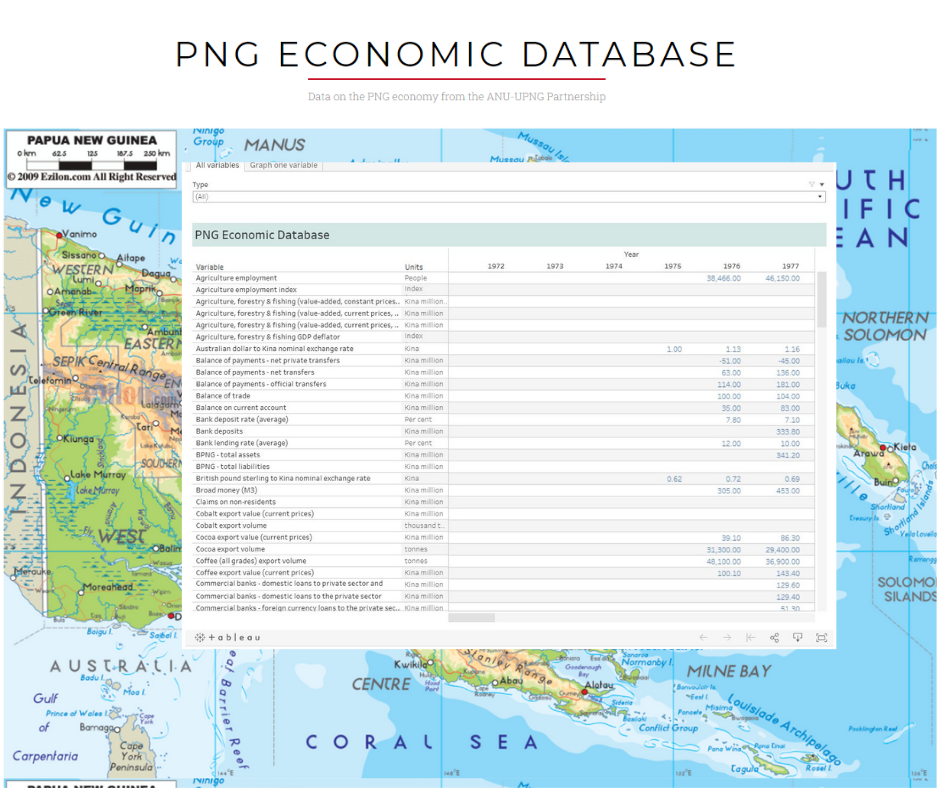A new online platform will provide open access to Papua New Guinea’s economic data from as far back as Independence – an important resource for the private sector, researchers and public policy makers.
The PNG Economic Database was launched on Thursday 30 September at the University of Papua New Guinea (UPNG) by Treasurer Hon. Ian Ling-Stuckey and Australian High Commissioner Jon Philp.
The database consolidates data across 160 economic indicators from 1975-2021 – information which had previously been inconsistently collated and difficult to find.
The platform was developed as a collaboration between the UPNG and the Australian National University and supported by the Papua New Guinea-Australia Partnership.
High Commissioner Philp said Papua New Guinea and Australia are partnering to foster economic growth and development that aligns with PNG’s economic needs and opportunities.
“The connection between UPNG and ANU is a great example of the modern relationship, close people-to-people links and collaboration between our two nations,” he said.
“We are committed to supporting PNG’s economic and development priorities, including through activities that strengthen evidence-based public policy and macroeconomic stability.
“There are no easy decisions when it comes to the economy, but having more data available enables government, the private sector and development partners to make more informed decisions.”

Australian High Commissioner, Jon Philp speaking during the PNG Economic Database launch.
UPNG economics lecturer Maholopa Laveil said it was difficult in the past to find data for economic indicators and the database will assist more accurate modelling of the PNG economy.
“With this database, everything is accessible, credible and will be updated from year to year, which reduces the work for researchers,” Mr Laveil said.
“Previously, I've had to comb through different and old reports to compile data series on population, budgets, DSIP fund volumes and more.”
He added, “Policy makers will have a more detailed grasp of the economy to make informed decisions and the database is open source so can be accessed to everyone, including researchers without financial aid.”

The PNG Economic Database is now publicly available online at https://devpolicy.org/pngeconomic/
For further information, including access to related materials, please contact the Australian High Commission media team: +675 7090 0100
